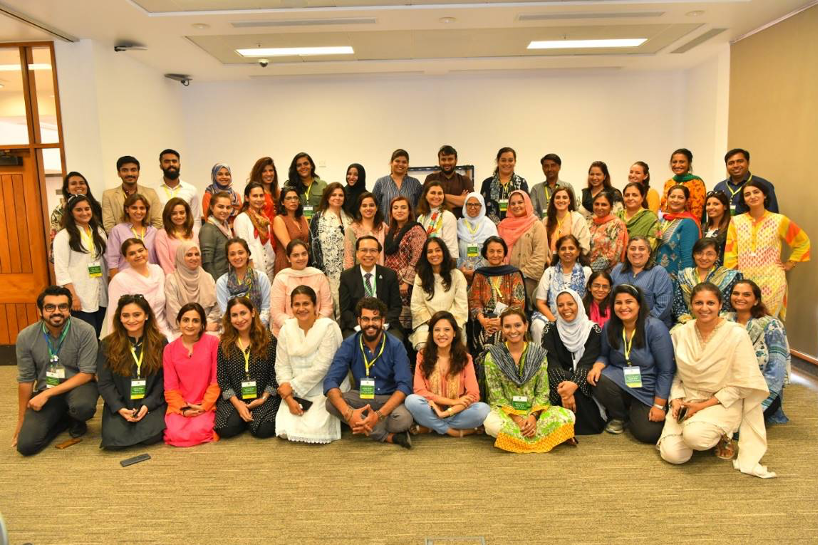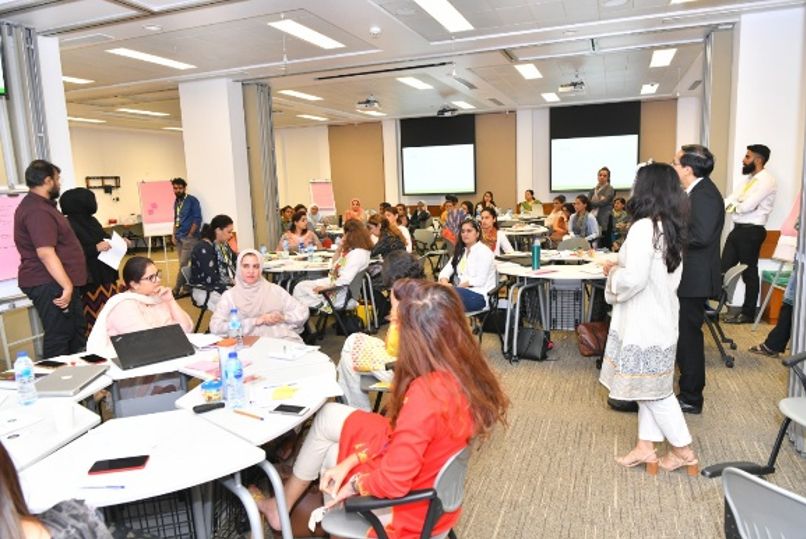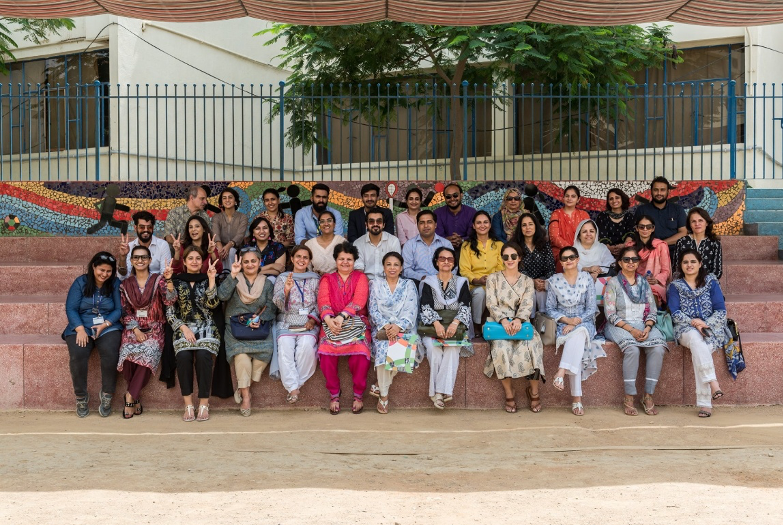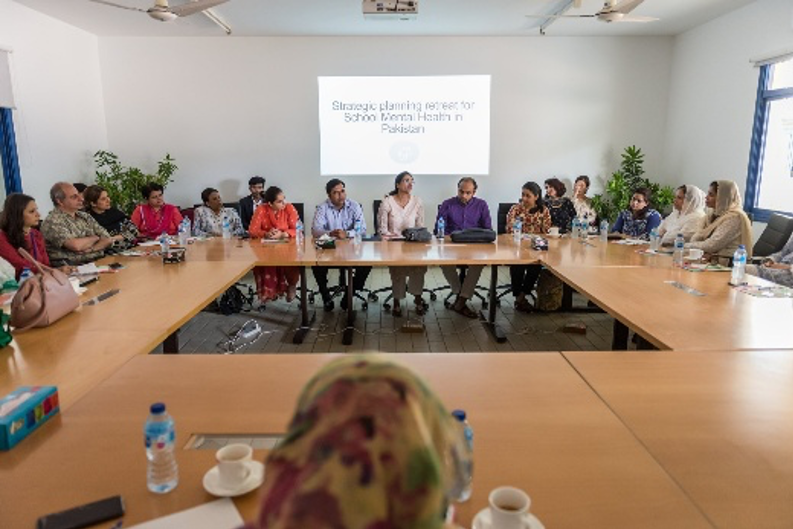School Mental Health Best Practices Institute in Pakistan
By Dr Aisha Sanober Chachar, MBBS FCPS (Psych), Child and Adolescent Psychiatry fellow
Aga Khan University Pakistan
Dr Ayesha I Mian, MD, Dean of Students, Associate Professor, Program Director, Child and Adolescent Psychiatry, Department of Psychiatry, Aga Khan University Pakistan
The School Mental Health Best Practices Institute was held at Aga Khan University (AKU), Pakistan from 11th – 14th September 2019. This program was organized by the AKU Department of Psychiatry in collaboration with International Association of Child and Adolescent Psychiatry & Allied Professions (IACAPAP) and Dawood Public School (DPS). This initiative included a 3-day experiential workshop followed by a half-day strategic planning retreat.
Workshop:
The 3-day workshop was attended by 63 participants, which included teachers, school counsellors, school administrators and educational psychologists. The curriculum was developed on the principle of blended learning, using a Virtual Learning Environment (VLE) – MOOC, in addition to a face to face (f2f) training Pedagogy included combination of large-group and small group activities. The small groups were designed to provide ample opportunities for exchange of ideas, insights, and personal experiences with colleagues. We also observed a significant amount of informal learning during tea and lunch breaks. Embedded within the schedule were 2 CME presentations by Dr Daniel Fung on Learning About Learning Disorders: A Personal Journey and Dr. Shashank Joshi, on Adolescent Suicide: Is It Preventable? Majority of the participants felt that the workshop met its objectives and found the content applicable and relevant to their classroom environment. There was an increased expression of interest and support for such endeavours in the future.
Strategic planning retreat:
The half-day strategic planning retreat was organized in collaboration with The Dawood Foundation on Sept 14th, 2019; the meeting was hosted by Dawood Public School. The goal of the retreat was to develop a strategic direction of initiatives in four key areas of action based on the needs assessment from the workshop. These areas were education & training in SMH, health promotion, teacher’s well-being and parenting based programs. Each area was discussed under the themes of research, cultural contextualization, and use of digital technology.
The strategic planning retreat brought together around 40 eminent leaders in education, paediatric medicine, mental health, school administration, psychology, social entrepreneurship, media, and civil society from Pakistan and abroad. It showcased the challenges faced by schools both in Pakistan and worldwide, with speakers drawing upon their own experience, practices in their respective institutions, and research in the field.
The day began with an introductory talk by the host Ms. Sabrina Dawood, CEO of The Dawood Foundation and a trustee of Dawood Public School. Ms Dawood shared her experience of directly managing Dawood Public School over the past ten years. She highlighted the importance of safe learning spaces in schools and the challenging role of school administration in fostering a culture of healthy school environment.
Dr. Ayesha Mian, a child and adolescent psychiatrist and Dean of Students at AKU, spoke about the current geopolitical situation prevalent in the country and its detrimental effect on the community’s mental health. She spoke about a lack of focus in this area in both private and public sectors, at all levels including individual, organizational, advocacy and policymaking.
Dr Daniel Fung, a child and adolescent psychiatrist and President of IACAPAP shared his experience of developing school-based mental health services in Singapore. Dr Fung highlighted the need to develop a system to understand the source of stress in teachers and promote mindful teaching practices among them.
Way forward:
School Mental Health Best Practices Institute provided a unique opportunity to interact and learn from experts, make new connections, and exchange ideas. This initiative was a starting point for future work and brought together a community of individuals dedicated to the cause of School Mental Health in Pakistan. Web-based interactive technologies used in this program have the potential to be replicated to other low-resource countries. It utilised a culturally contextualised curriculum, an interactive pedagogy and well prepared educational enduring material coupled with a robust evaluation methodology, all of which can easily be replicated and used for dissemination of sustainable school mental health training across the globe.

SMH workshop at Aga Khan University

VLE – MOOC Interface

Participants discussions during workshop sessions

SMH Strategic Planning Retreat at Dawood Public School

Discussions in break through sessions

